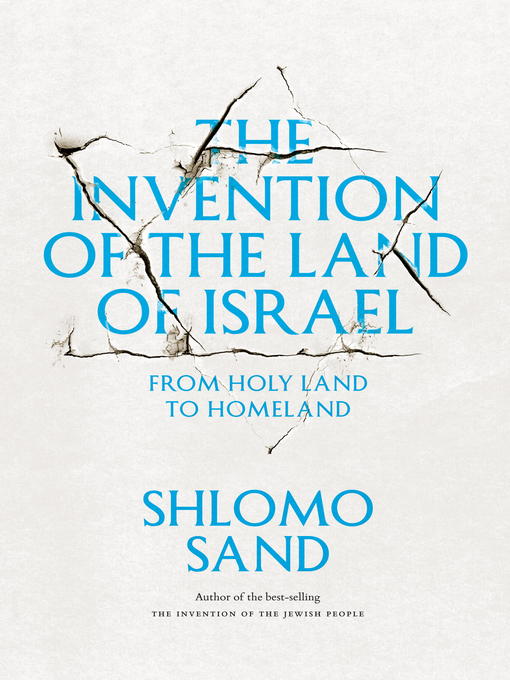
The Invention of the Land of Israel
From Holy Land to Homeland
- اطلاعات
- نقد و بررسی
- دیدگاه کاربران
نقد و بررسی

October 8, 2012
In his newest, Sand (The Invention of the Jewish People), a professor of modern history at the University of Tel Aviv, seeks “to deconstruct the concept of the Jewish ‘historical right’ to the Land of Israel and its associated nationalist narratives.” Supported by religious and historical sources, he shows that the term “Land of Israel” gained primacy in the early 20th century, and that before that time, observant Jews thought of the land as “an internal spiritual state” rather than a “concrete territorial site.” However, early secular Zionist pioneers began to incorporate notions of redemption into their migrational aspirations. In the process, Zionist and Israeli leaders often rode roughshod over the rights of Palestinian Arabs. Finally, Sand unpacks the radical “Judaization” of Israel after 1948, and shows how, post-1967, a “mythic Land of Israel” that included the West Bank and East Jerusalem “continued to inhabit the interstices of Zionist consciousness.” A thought-provoking, readable, and important work.

October 15, 2012
A Jewish scholar harshly criticizes the founding narrative of the State of Israel. The concept of "homeland" is a relatively new historical construct, "one of the more surprising, and perhaps the most destructive creations, of the modern era," writes Sand (Contemporary History/Univ. of Tel Aviv; The Words and the Land: Israeli Intellectuals and the Nationalist Myth, 2011, etc.). From this general perspective and from the argument made in his highly controversial book, The Invention of the Jewish People (2010), which disputed the idea that Jews "belong to an ancient race-based people," the author doubles down with an attack on the whole notion of an ancestral home for the world's Jews. The idea of a Jewish homeland, he insists, is a turn-of-the-century Zionist invention (given urgency by the Holocaust), a political construct designed to lend moral legitimacy to the seizing of territory to which the Jews have no historical right. He accuses Zionists of getting not only the history wrong, but the religion too. Properly understood, he writes, the Holy Land is an allegorical, intangible expression of the faithful. Well aware of the incendiary implications of his argument and knowing that it will likely be willfully misunderstood both by anti-Semites and zealous nationalists, Sand maintains that his deconstruction of the mythology at the heart of Israel's founding is a necessary prerequisite to a "pragmatic and realistic" resolution of the current conflict with Palestinians. The author attempts, but does not fully succeed, in lightening the relentlessly professorial prose with a few personal anecdotes--his placid complicity in the murder of a Palestinian, a great-grandfather buried on the Mount of Olives, the uncommemorated Arab village that once occupied the site of the Israeli university where he teaches. However, these demonstrate that, unlike many of his prominent Zionist critics, he has some skin in the game. Will appeal primarily to specialists or to general readers with an abiding interest in Israel's future.
COPYRIGHT(2012) Kirkus Reviews, ALL RIGHTS RESERVED.




دیدگاه کاربران